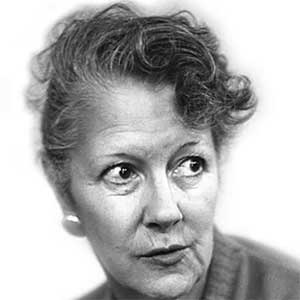
Picture what it must have been like – over 20 000 women of all ages and races from all across South Africa marching together towards the Union Buildings in Pretoria. Though each marcher must have thought about the risk of arrest, they bravely came together on 9 August 1956 as a formidable force to protest against the pass laws that proposed further restrictions on the movements of women.
This 9 August we celebrate the anniversary of this landmark Women's March. It is an ideal time to celebrate and reflect on the status of women today and the advances made since that historical day when South African women organised one of the largest and most successful protests in the country's history.
"The situation on the day (9 August 1956) was very electrifying as everybody was looking forward to a serious confrontation," marcher Amina Cachalia recalls. "As a young person at the time, the march was a learning curve for a journey that finally came to the election of the new democratic government."
The Federation of South African Women (Fedsaw) organised the March, led by four women; Helen Joseph (pictured above), Rahima Moosa, Sophy Williams and Lilian Ngoyi. The leaders delivered petitions to Prime Minister JG Strijdom's office within the Union Buildings. Women throughout the country had put their names to these petitions indicating their anger and frustration at having their freedom of movement restricted by the hated official passes.
Many women wore traditional clothing while others displayed the green, black and gold of the African National Congress. Some of the women marched with babies on their backs, or were accompanied by small children. Rahaba Mahlakedi Moeketsi recalled, "Some were carrying the white children with them, those who were working for whites.
"We were all enthusiastic to get there and see this Boer baas and tell him that we are not going to carry those things (passes)."
Dorothy Masenya recalls her attitude and the collective attitude of the marchers on the day. "We wanted to see whether we were going to be arrested, or where would they find a prison for this entire mob. You see that was the big idea o a bona [you see] if they arrest one we all walk in and there is no turning back. So instead; really, they gave us a way out. Nobody was arrested on that day."
The women concluded their demonstration by singing freedom songs like Nkosi sikeleli Afrika and a new song which became not only the anthem of the march, but the credo of South African women, the song was saying: 'If you strike a woman, you strike a rock.'
The Women's March was a spectacular success. We need to applaud and recognise the bravery of these women who risked official reprisals including arrest, detention and even bannings. The March showed that the commonly accepted stereotype of women as politically inept and immature, tied to the home, was outdated and inaccurate.
Women proved that they were not powerless to make significant changes to a way of life that discriminated against them primarily because of their race, but also because of their class and their gender. They had the ability to organise themselves and to be a political force to be reckoned with.
Women's political organisation and their struggle for freedom and gender equality has belatedly been given recognition. The stories of many of the women who took part in the March and played important roles in our history have gone untold.
An exciting new project by South African History Online (SAHO) is working to capture and preserve information about these women, in particular those that took part in the 1956 March. SAHO is developing a huge online resource of biographies, chronologies, essays and photographs of the women's political struggle and women's issues from 1900 until present day.
It is difficult to gather information about the women who played a significant role in South African history, in particular those that took part in the 1956 March. There has been little systematic research on the topic. Many of the women have passed away or their contact details have been lost. It is therefore important that today's researchers try to salvage what they can from oral history initiatives, organisations' archival information, books and old newspaper articles.
South African History Online has also embarked on a national Oral History Project in collaboration with the Department of Education to assist in gathering more information from communities on the role played by people in the liberation struggle, in particular women.
Even though the issues that concerned women in the 1950s were very different to the issues facing women in modern day South Africa, the background of the 1956 Women's March has helped women of today to organise themselves politically and within the community to take up the challenges of the day. The 1956 March helped to shape the ideologies of many, particular those that drafted the South African Constitution and the Commission of Gender and Equality.
The phrase 'Strike a woman, strike a rock' has come to represent women's courage and strength. The Congress Alliance decided to mark 9 August celebrated as Women's Day, and it is now, in the new South Africa, commemorated each year as a national holiday.
Joni Light and Javu Baloyi are researchers with South African History Online. To read about the project visit http://www.sahistory.org.za/pages/specialprojects/womens-struggle/framesetNEW.htm. This article is part of the Gender Links Opinion and Commentary Service that provides fresh views on everyday news.
Image source: www.durban.gov.za
What are your thoughts concerning Women's Day? Share in the box below...




 Publications
Publications
 Partners
Partners










